
Main Page
Alphabetical Menu
Chronological Menu
|
Before Midnight 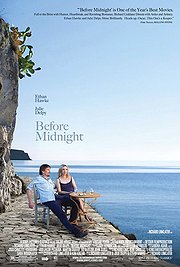 Jesse (Ethan Hawke) and his wife Celine (Julie Delpy) live in Paris their twin girls, Ella (Jennifer Prior) and Nina (Charlotte Prior). Hank (Seamus Davey-Fitzpatrick), Jesse's teenage son from a previous marriage, returns to Chicago after spending his summer vacationing with them in Greece. Jesse and his family have been staying at the beautiful seaside villa of their friend Patrick (Walter Lassally), who, like Jessie, is also a writer. A lot of tension and pent-up emotions rise to the surface as Jessie and Celine talk openly about their regrets and other thoughts and feelings threaten to break their marriage apart. After Before Sunrise and Before Sunset, Before Midnight rounds out the romantic drama trilogy on a deeply satisfying high note. Co-screenwriters Ethan Hawke and Julie Delpy have a very good ear for natural dialogue that never once feels stilted or veers into contrivance. Jesse and Celine are a couple who you truly care about because they come to life on the screen with all of their flaws and insecurities that make them all the more human. Neither of them is even close to perfect. There's no denying that they are two intelligent and complex individuals who talk a lot and actually say a lot, too. You can sense that deep down inside, in spite of their differences and arguments that you observe onscreen, they genuinely love on another; they may not always show it explicitly. Ethan Hawke and Julie Delpy's convincingly moving and naturalistic performances further enrich the film. Like the prior films in the trilogy, Before Midnight has plenty of subtlety, nuance, charm and pure, unadulterated poignancy that makes it a life-affirming, emotionally captivating and rewarding experience. Director Richard Linklater together with his co-writers respect the audiences' intelligence by treating them like sophisticated, mature adults---a demographic that has been sorely neglected by Hollywood nowadays. Keep in mind that not all of the film is heavy, serious or thought-provoking. If it were too serious, it would've been too dry and boring. If it were too heavy in terms of the content of Celine and Jesse's profound arguments, it would've been exhausting. Before Midnight has just the right balance between drama, romance and levity in the form of comic relief and the picturesque, relaxing Greece setting. Moreover, the screenwriters brilliantly avoid using flashbacks which would have been distracting and awkward; instead, they merely have Jesse and Celine referring to the past and vividly describing their memories. The ending, that won't be spoiled here, works on many levels because it's well-earned and leaves you with a lot to think about and feel. It's a real triumph and a refreshing way to escape the loud, mind-numbing summer blockbusters. 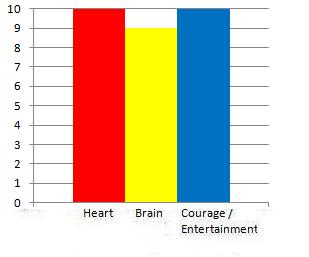 Fast & Furious 6 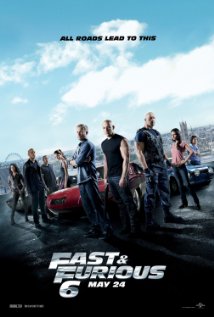 Ever since their last heist in Rio, Dominic Toretto (Vin Diesel), Brian O'Conner (Paul Walker) and the rest of their crew have dispersed and started new lives in hopes of evading arrest for their crimes. Federal agent Luke Hobbs (Dwayne Johnson) offers them a deal: if they re-assemble their team and capture ruthless mercenary Owen Shaw (Luke Evans) and his ring of theives, they will all receive pardons. Owen and his crew have been stealing government technology, so now it's up to Brian and his crew to stop him. The sixth installment of the Fast & Furious franchise can best be summed up as loud a long, tedious, preposterous, incoherent video game made for shallow and indolent people. It offers nothing new, interesting, surprising or fun for a whopping 2 hours and 10 minutes. Queue the stilted dialogue and lots of wooden acting. How Letty (Michelle Rodriguez) turns out to be alive and working for Owen's team is a whole other matter. But, admit it, you're not watching Fast & Furious 6 for realism or good acting or a fine screenplay? You're there for the cool cars, "sexy" babes, car chases and other set pieces that will make you go "ooo" and "aaah", right? In Fast Five, the action was exciting, exhilarating and a pure rush of adrenaline that did provide some "ooo"s and "aaah"s on a visceral level. Here, it feels like it's all been-there-done-that, and many of the set pieces grow tiresome and defy even internal logic to the extent that you'll be rolling your eyes more often than not. What's exciting about watching a car chase for the 100th time if the plot or characters aren't the least bit involving? Every great action thriller has at least a modicum of something that grounded in true human behavior. Given that the set pieces are so lackluster, there's nothing for Fast & Furious 6 to fall back on because its characters merely come across as cardboard cutouts. As the plot grows increasingly asinine, so does your patience. Had the movie been just 90 minutes, it would have been passable, but at 130 minutes, it overstays its welcome. If you make it through to the end, be sure to stay through the end credits for a stinger. 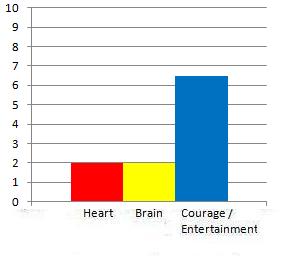 Fill the Void 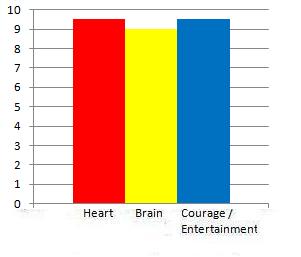 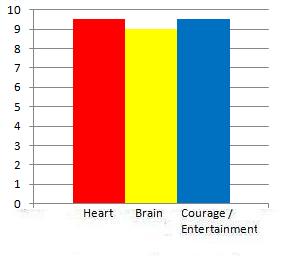 We Steal Secrets: The Story of Wikileaks 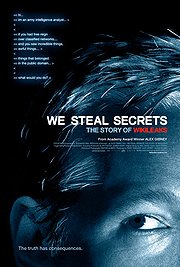 We Steal Secrets jumps back and forth between telling the story of Wikileaks founder Julian Assange and the story of Private Bradley Manning who leaked the material to him. Assange gained popularity as the founder of WikiLeaks.org where he published top-secret material that was leaked to him and his few colleagues. The material included a video called "Collateral Murder" that showed footage of a U.S. soldiers in a helicopter shooting innocent Iraqi civilians as well as two journalists. Private Bradley Manning, a intelligence analyst for the U.S. Army stationed in Baghdad, was the one leaked the footage to Wikileaks along with other classified government documents. After chatting online with Adrian Lamo, a hacker, and admitting to him that he leaked the material to Wikileaks, Lamo snitched on him to the U.S. government leading to the government arresting Manning and charging him with 22 counts including aiding the enemy. Were the leaked materials truly a threat to national security or merely an embarrassment? Are Assange and Manning a hero or a traitor? The U.S. public, after all, for the sake of democracy, deserves the right to be fully informed about everything including what goes on overseas during the Iraqi War. Otherwise, how could they make fully-informed decisions? If only Manning and Assange's stories were as simple as black-and-white. We Steal Secrets at least sheds some light on the gray areas and doesn't offer any solid conclusions, but concurrently it doesn't really offer any new or surprising information or any profound analysis, so it remains slightly undercooked. Assange was in a scandal involving two women who claimed that he raped them. Was he set up? That incident, regardless of whether or not the allegations were true, was used to smear Assange. A journalist who interviewed him around that time asked him a personal question about his private life and asked it again even though he refused to answer it. Kudos to Assange for walking out of the interview at that point, and shame on that journalist for being among the many incompetent, so-called "journalists" around these days. Director Alex Gibney doesn't succeed in getting an interview with Assange because Assange demanded money for the interview. So what? Gibney should have paid him because, without a crucial interview with Assange himself, this doc merely scratches his multifaceted surface. Interviewing his colleagues is not enough. Imagine The Most Dangerous Man in America: Daniel Ellsberg and the Pentagon Papers without the interviews with Ellsberg. It would have lost power tremendously as does We Steal Secrets. This doc could have used a lot more assessments and analysis of all the facts about Assange and Manning. Perhaps the brilliant, critical-thinking Noam Chomsky, Naomi Woolf or Daniel Ellsberg would have helped to provide that much-needed analysis. 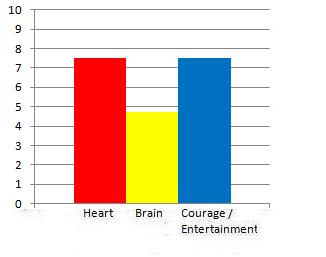 Main Page Alphabetical Menu Chronological Menu ______________________________________________________ |
The NYC Movie Guru
themovieguru101@yahoo.com
Privacy Policy